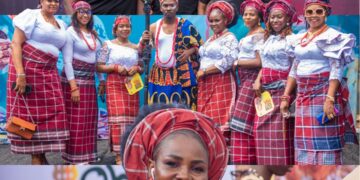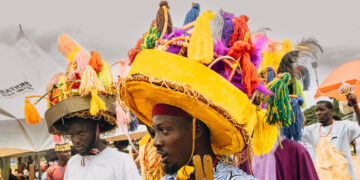Celebrating the New Yam Festival in Anambra State
The second edition of the Anambra State “Iri Ji Festival” (New Yam Festival) has once again proven to be a resounding success, bringing together the people of Ndi Anambra and beyond to celebrate the rich cultural heritage of the Igbo nation. This vibrant festival is more than just a celebration of the yam harvest; it’s a testament to the importance of tradition, community, and social cohesion.

The Significance of Yam in Igbo Culture:
In Igbo culture, yam is not just a staple food; it’s a symbol of productivity, hard work, and resilience. The yam represents the fruits of one’s labor, and its harvest is a time for gratitude and celebration. The Iri Ji Festival serves as a reminder of the value of self-sufficiency and the importance of producing what we eat.
Fostering Social Cohesion and Economic Growth:
This year’s festival has taken it to the next level with the “Di Ji” contest, offering a substantial prize money to encourage mass participation in the coming farming season. With the possibility of winning up to 5 million Naira next year, Ndi Anambra are already looking forward to an even bigger and better celebration.
Leadership and Vision:
Kudos to the Anambra State Commissioner of Culture, Entertainment, and Tourism, Comrade Don Onyenji, for his tireless efforts in promoting the state’s rich cultural heritage through initiatives like the Iri Ji Festival. His accessibility and willingness to engage with stakeholders have created an enabling environment for creativity and innovation.

Governor Soludo’s Commitment to Cultural Development:
Governor Soludo’s administration has demonstrated a clear commitment to impacting the state through culture. By supporting initiatives like the Iri Ji Festival, the governor is helping to preserve and promote Anambra State’s cultural identity, thereby contributing to the state’s socioeconomic development.
Conclusion:
The Iri Ji Festival is a shining example of African traditional festivals and celebrations that showcase the continent’s rich cultural diversity. As we look forward to the third edition of this magnificent event, let us continue to explore and appreciate the importance of Igbo culture and its contributions to Nigerian heritage.







